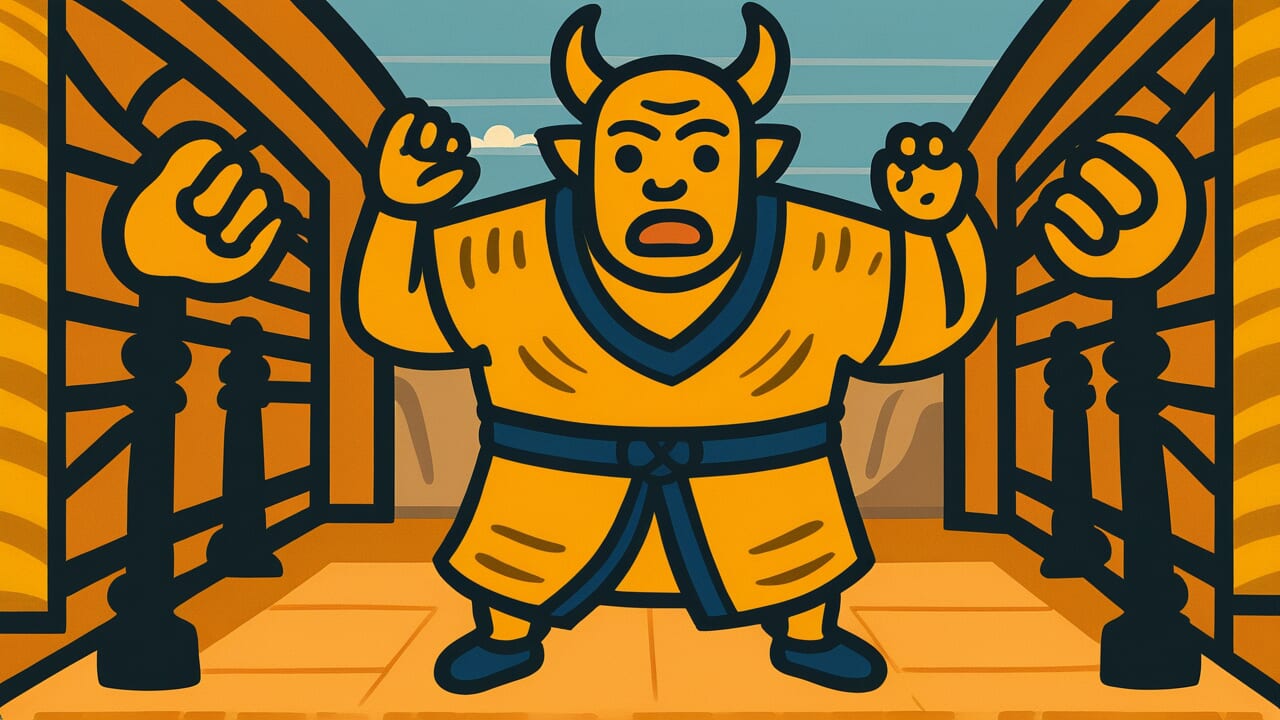How to Read “Misfortune comes from within myself”
Kimon konjin ware yori tataru
Meaning of “Misfortune comes from within myself”
This proverb warns us that the true cause of wrongdoing and misfortune lies within ourselves.
It teaches that we should examine our own actions first, rather than fearing external bad omens like kimon or Konjin.
When people face difficulties, they tend to blame their environment, other people, or bad luck.
But the real source of disaster often comes from within. It comes from our own laziness, poor judgment, or arrogance.
This proverb sharply points out this human weakness.
People use this saying when someone blames external factors for their failures. It encourages them to take personal responsibility.
You can also use it to remind yourself to be accountable.
Few people believe in superstitions today. But the psychology of shifting blame hasn’t changed.
That’s why the essential meaning of this proverb never fades. It continues to teach us the importance of self-reflection.
Origin and Etymology
This proverb uses two concepts from Onmyodo: kimon and Konjin. Both were considered unlucky directions.
Kimon refers to the northeast direction. People believed demons entered and exited through this unlucky direction.
Konjin was a directional deity. Its position changed with the year and season. People feared curses if they violated this direction.
From the Heian period through the Edo period, people paid careful attention to these directions. They avoided them when building houses or traveling.
There was even a custom called katatagae. People would take long detours just to avoid unlucky directions.
But this proverb isn’t simply about directions. The phrase “ware yori tataru” (comes from within myself) carries the important meaning.
No matter how much you avoid kimon or Konjin, the cause of disaster ultimately lies in your own actions.
This expression was likely created to warn against the human tendency to shift responsibility to external factors.
Precisely because it was a superstitious era, the message “don’t blame the outside” needed to be strong.
The proverb deliberately references kimon and Konjin, the things people feared most at the time.
It contains the deep insight of our ancestors. Correcting your heart and actions matters more than the fortune of directions.
Usage Examples
- The project didn’t fail because of bad luck. Misfortune comes from within myself—it was due to poor preparation.
- I blamed my environment for relationship problems. But as the saying goes, misfortune comes from within myself—my attitude was the issue.
Universal Wisdom
This proverb has been passed down for so long because it addresses a fundamental human psychological tendency.
We instinctively try to protect ourselves. When we face failure or misfortune, admitting it causes great psychological pain.
So we unconsciously seek responsibility outside ourselves.
Ancient people feared kimon and Konjin for similar psychological reasons. Blaming invisible forces lets you escape your own responsibility.
But our ancestors saw through this. They understood that such escape ultimately prevents personal growth.
The deep wisdom of this proverb lies in not completely denying external factors. Luck and environment do have influence.
But if you use them as excuses and ignore your own responsibility, you’ll repeat the same mistakes.
True disaster comes from neglecting self-reflection.
Humans are weak creatures. That’s why facing ourselves honestly is so difficult.
But when you choose that difficult path, real growth begins. This proverb gives us the courage to choose the right path, not the easy one.
When AI Hears This
When the human brain processes anxiety or failure, it follows two patterns. It either seeks the cause externally or internally.
Cognitive psychology calls this “locus of control.” Interestingly, research shows that people with external locus actually blame themselves internally more.
For example, when researchers study people who worry about directional fortune, they cite external factors on the surface.
They say “bad things happened because of kimon.” But psychological tests reveal their deeper layers.
They actually show strong feelings of self-blame, thinking “maybe it was my poor judgment.” The concept of external curses functions as a defense mechanism against the pain of self-blame.
But this defense backfires. When you keep seeking causes externally, you also hand over control to solve the problem.
People who think “Konjin is cursing me” become less likely to take action to change their situation.
As a result, their anxiety isn’t resolved. They fall into a vicious cycle of searching for more external factors.
The essence this proverb points out is exactly this psychological mechanism. Deep in the heart that fears external supernatural forces lies an “inner curse.”
This curse is actually distrust and guilt toward oneself. The more you look outward, the more your inner suffering amplifies.
The proverb captures this ironic structure of human psychology perfectly.
Lessons for Today
This proverb teaches modern people that true freedom begins with accepting personal responsibility.
It’s easy to criticize someone on social media or blame society and politics. But that changes nothing.
If you’re facing any difficulty right now, stop and think for a moment.
Was it really just bad luck? Was the environment the only problem? Maybe there was still something you could have done.
This question isn’t meant to make you blame yourself. Rather, it’s meant to give you back your power.
As long as you blame external factors, you remain a powerless victim. But the moment you acknowledge your responsibility, you become an agent who can create change.
No one is perfect. Everyone fails. What matters is what you learn from that failure.
Misfortune comes from within myself. Keep these words in your heart and have the courage to face yourself honestly.
That one step will be the beginning of changing your future.



Comments